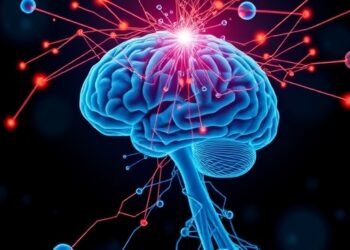The novel coronavirus known as SARS-CoV-2 first appeared in the Chinese city of Wuhan at the end of 2019 and spread rapidly around the world. The first case in Germany was confirmed in January 2020. In early 2020, SARS-CoV-2 was identified as the cause of the infectious disease COVID-19 and was classified as a pandemic by the World Health Organisation from spring 2020.
The novel coronavirus known as SARS-CoV-2 first appeared in the Chinese city of Wuhan at the end of 2019 and spread rapidly around the world. The first case in Germany was confirmed in January 2020. In early 2020, SARS-CoV-2 was identified as the cause of the infectious disease COVID-19 and was classified as a pandemic by the World Health Organisation from spring 2020.
Non-pharmaceutical interventions (NPIs) were used to contain the spread of SARS-CoV-2 in the early stages of the pandemic, when neither vaccines nor targeted drugs were available to treat the infection and disease. These NPIs included reducing contact with people outside the household, wearing medical respirators and, when available, the widespread use of rapid antigen tests. As the pandemic progressed, the effectiveness of some of these measures was increasingly questioned.
Success analysis of COVID-19 measures in Germany
Scientists Sama Goliaei and Mohammad-Hadi Foroughmand-Araabi from Prof. Alice McHardy’s research group at the HZI, together with Prof. Denise Kühnert’s group at the Robert Koch Institute (RKI) and the Max Planck Institute for Geoanthropology, have investigated the success of the interventions that were carried out in Germany. To this end, the scientists analysed almost two million SARS-CoV-2 genomes that occurred in the German population during the years of the pandemic and were collected in a database. They then compared the occurrence of new virus variants in Germany during the course of the pandemic—as a measure of the introduction of new variants from other parts of the world—with the timing of the introduction of certain measures.
The results show that significantly fewer new virus variants entered Germany when certain measures came into force. The researchers recorded the sharpest declines following the introduction of free rapid antigen tests, the tightening of regulations on the wearing of medical masks on public transport and in retail outlets, as well as restrictions on personal movement and gatherings.
Use of genome sequences to track SARS-CoV-2 variants
During the coronavirus pandemic, many countries monitored changes in the genomes of the predominant SARS-CoV-2 variants to track the spread and emergence of new variants. First author Sama Goliaei explains: “This surveillance resulted in an unprecedented amount of genome sequences that could be used to reconstruct the spatial spread and evolution of the virus strains. We used 1.8 million SARS-CoV-2 genome data from this pool, which were collected between late 2020 and early 2021—i.e. during the third wave of the pandemic in Germany”.
To find out how the introduction of measures to contain the pandemic influenced the spread of SARS-CoV-2 virus variants, the researchers are using a new approach known as “phylogeographic Bayesian analysis”.
Bayesian phylogeography is a field of research within evolutionary biology and biogeography that uses specialised statistical methods to identify spatial and temporal patterns in the movement and evolution of species. In this approach, information from genetic data such as DNA sequences is combined with geographical data to reconstruct the spread and divergence of populations.
Influence of non-pharmaceutical interventions (NPIs) on the spread of SARS-CoV-2 in Germany
Using three sampling strategies, the researchers determined the SARS-CoV-2 lineages introduced into Germany and the respective time of introduction from the above-mentioned data set. To determine the influence of the interventions on the introduction and spread of these lines, the group collated information from published sources on over 4,000 interventions implemented in Germany and then classified them into a total of twelve overarching NPIs.
The introduction and application periods of these categorised and classified NPIs were then correlated with the geographical and temporal occurrence of the virus lines in order to determine the influence of the interventions on the introduction of the virus and its distribution within Germany.
“Especially after the provision of free rapid antigen tests and the tightening of regulations on the use of medical respirators, the introduction of new SARS-CoV-2 variants into Germany has decreased significantly,” says Mohammad-Hadi Foroughmand-Araabi. These measures are not as disruptive to daily life as, for example, no-contact orders, and could therefore be used quickly and comprehensively in future pandemics to counter the spread of the virus.
“The results of the analyses have not only provided insights into the behaviour of the virus during a pandemic,” summarises group leader Prof. Alice McHardy. “Importantly, the methodology used in the study may also help to identify correlations between environmental factors and the spread of the pathogen in the early stages of possible future pandemics. In this way, evidence on the efficacy of certain NPIs could be obtained more quickly.”
Journal
Nature Communications
Method of Research
Data/statistical analysis
Subject of Research
Not applicable
Article Title
Importations of SARS-CoV-2 lineages decline after nonpharmaceutical interventions in phylogeographic analyses
Article Publication Date
20-Jun-2024




